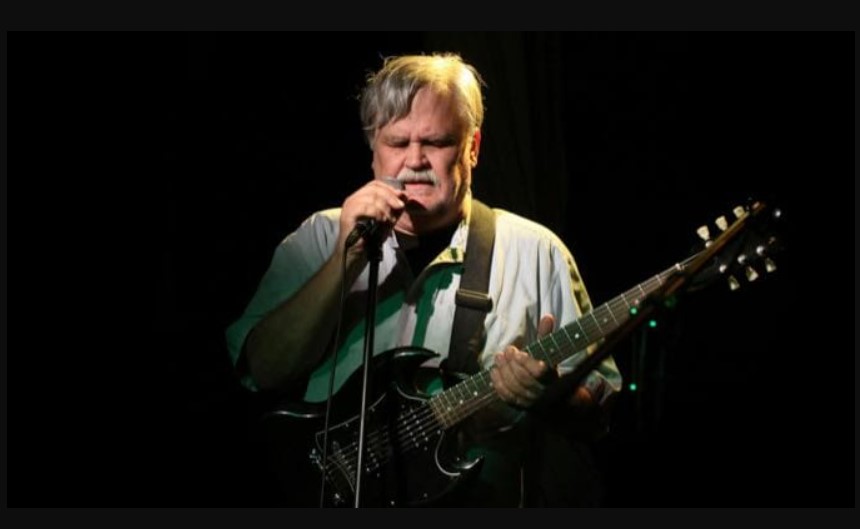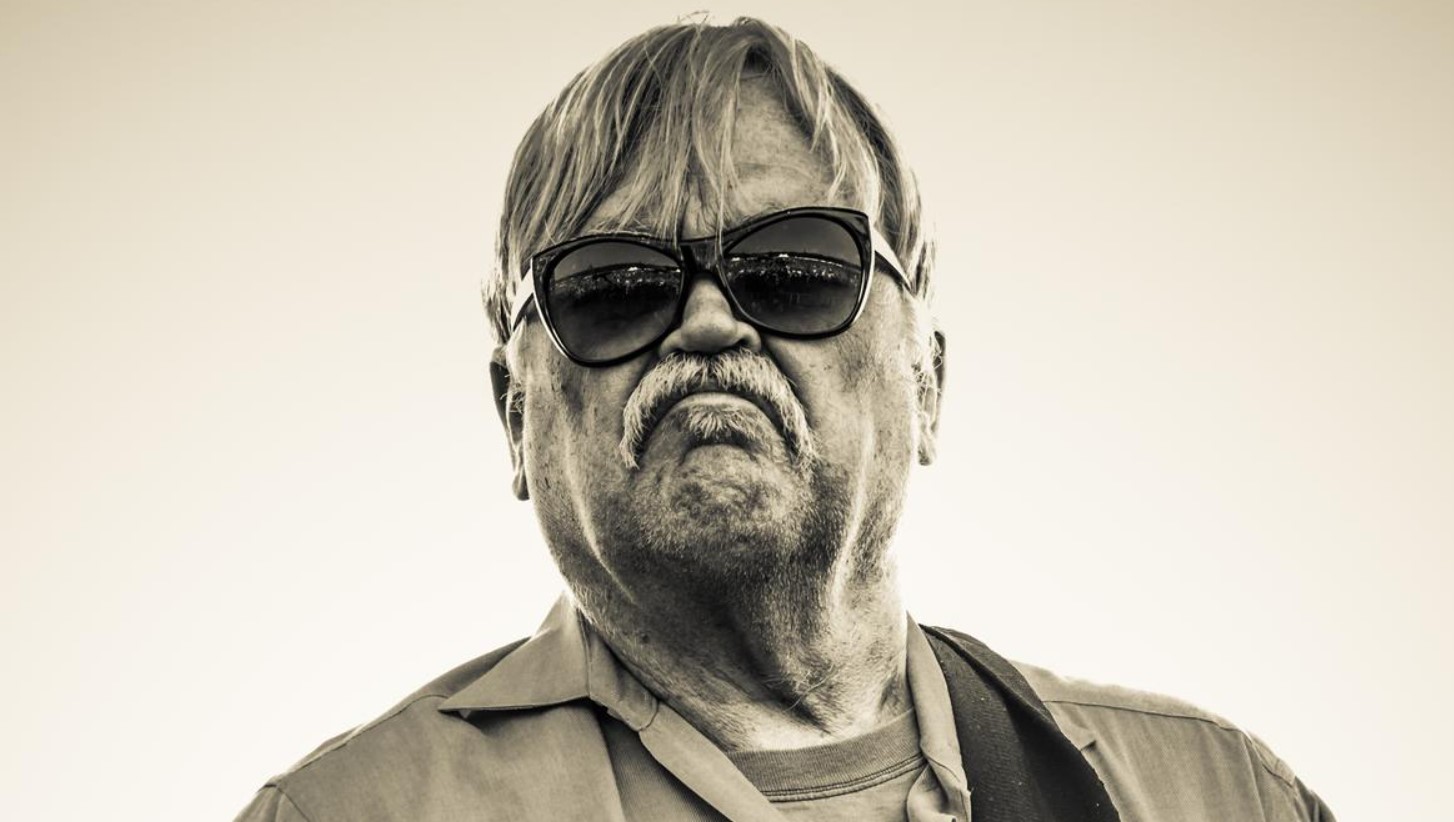Col. Bruce Hampton’s unbelievable end was as theatrical and unexpected as his life itself. Known as the “Granddaddy of the Jam Scene,” Hampton was a musician renowned for his eclectic style and eccentric performances. On the night of his 70th birthday, May 1, 2017, he was performing at a star-studded tribute concert in his honor at the Fox Theatre in Atlanta. As the evening drew to a close, the surreal spectacle unfolded. While performing an encore of his favorite song, “Turn on Your Love Light,” Hampton suddenly collapsed on stage.
The audience and fellow performers initially thought it was part of his act, given his reputation for unpredictable performances. It was only when the music stopped and the theater lights came on that everyone realized the gravity of the situation. Hampton was rushed to the hospital but was pronounced dead a short while later. The cause of death was a heart attack. His final performance, like his musical career, left an indelible mark on the world of music. Despite the tragic circumstances, many of his fans believe that Hampton couldn’t have scripted a more fitting end to his life. He died doing what he loved most, on stage, guitar in hand, basking in the adoration of his fans. His legacy lives on in the music he created and the countless musicians he inspired.

Subscribe to Low Down and Dirty
Join a community of audacious adventurers by subscribing to Low Down and Dirty. This boundary-pushing platform will ignite your spirit of exploration and challenge your perception of conventional norms, offering a thrilling escape from the mundane. Set in the backdrop of gritty streets and rugged terrains, Low Down and Dirty bridges the gap between the mainstream and the underground. It’s an adrenaline-pumping, raw, and unfiltered space that presents a unique blend of thrilling narratives and captivating visuals, transporting you into a world less traveled.
Low Down and Dirty tears down the facade of the polished and the immaculate, revealing the raw, unpolished beauty of life’s underbelly. It’s a platform that dares to explore the hushed whispers of the unconventional, from the epic narratives of street racers to the daring feats of urban explorers. The content is not for the faint-hearted; it’s for the thrill-seekers and those who crave an unembellished perspective of the world.
Every subscription to Low Down and Dirty unlocks an array of exclusive content, including riveting documentaries, audacious podcasts, and gripping articles. The content is carefully curated and intuitively categorized to provide an immersive experience for the subscribers. The platform is user-friendly and easy to navigate, ensuring that you can delve into the thrilling world of Low Down and Dirty with ease and convenience.
In addition, subscribers become part of a vibrant, supportive community. They can engage in insightful discussions, share experiences, and learn from like-minded individuals. Hence, subscribing to Low Down and Dirty is more than just accessing content; it’s about becoming part of a dynamic community that challenges norms and breaks boundaries.
So, if you’re yearning for a dose of bold, unfiltered content that takes you off the beaten path and into the heart of the unconventional, don’t hesitate. Subscribe to Low Down and Dirty, and venture into a world that dares to challenge, thrill, and inspire.
Col. Bruce Hampton’s Remarkable Demise
Col. Bruce Hampton’s demise was as extraordinary and unexpected as the man himself. Known as the granddaddy of the jam-band scene, Hampton’s final moments were spent doing what he loved; performing on stage. During an all-star concert held in his honor on May 1st, 2017, to celebrate his 70th birthday, Hampton suddenly collapsed while performing an encore. The audience, initially thinking it was part of his performance, soon realized the gravity of the situation. The music legend had suffered a heart attack on stage, collapsing into his final bow in front of a live audience. This spectacular exit, although tragic, was in essence a fitting end to a man who lived his life on his own terms, always pushing boundaries and never conforming to the norms of conventional music.
His demise was not just the end of a life but also the conclusion of an era of unique, improvised music which he pioneered. His death sent shockwaves through the music industry, with tributes pouring in from around the world. The way he exited the world stage was indeed remarkable, mirroring his eccentric and larger-than-life persona. His influence on the music industry, particularly in the jam-band scene, continues to be felt even after his death. His life and end serve as a reminder of an unconventional artist who changed the face of music and left an indelible mark on the world.
Unraveling “Layla”
“Layla” is a song that has intrigued and fascinated music enthusiasts worldwide since its release in 1970. This classic, penned and performed by Eric Clapton, has a rich, complex history that’s an intricate tapestry of passion, heartbreak, and redemption. The song was initially conceived as a love letter of sorts, expressing Clapton’s unrequited affection for Pattie Boyd, then-wife of his close friend George Harrison. The name “Layla” was inspired by the ancient Arabian love story “Layla and Majnun”, mirroring Clapton’s own tumultuous emotions.
The song’s structure itself is a testament to its complexity. It starts with a fiery, assertive guitar riff, which transitions into a softer, more poignant piano coda towards the end. This switch in tone and pace perhaps reflects the rollercoaster of emotions surrounding forbidden love. The first part of “Layla”, the tormented plea for reciprocated love, was written by Clapton. The second part, the melancholic instrumental, was contributed by Jim Gordon, Clapton’s bandmate in Derek and the Dominos.
In the years since its release, “Layla” has evolved, both in its presentation and its meaning to Clapton. The original rock anthem was transformed into a stripped-back, acoustic version for Clapton’s “Unplugged” album in 1992. This rendition, devoid of the original’s intense energy, instead conveys a sense of acceptance and peace. It mirrors the transformation in Clapton’s personal life, as he had by then found solace in sobriety and spirituality.
Unraveling “Layla” thus reveals a narrative that transcends the boundaries of mere musical composition. It is an embodiment of Clapton’s personal journey, a testament to his artistic genius, and a symbol of enduring, passionate love. The song remains a touchstone in popular culture, continually enchanting listeners with its captivating melody and profound backstory.
Remembering Dickey Betts
Dickey Betts, a renowned name in the world of southern rock, is fondly remembered for his significant contributions. Born in West Palm Beach, Florida, in 1943, Betts grew up to be an influential guitarist, singer, songwriter, and composer who would make an indelible mark in the music industry. He is best known as a founding member of the Allman Brothers Band, where his distinctive guitar work and songwriting skills were instrumental in shaping the band’s unique sound.
Betts’ innovative style of playing, marked by its blues-infused melodies and improvisational flair, was a defining element of the Allman Brothers’ music. His compositions like ‘Ramblin’ Man’ and ‘Blue Sky’ are considered seminal works in the southern rock genre, celebrated for their lyrical depth and musical complexity. His guitar duets with Duane Allman, particularly in the iconic ‘Jessica,’ are still revered by musicians and fans alike.
Moreover, Betts was not just a gifted musician, but also a compelling performer. His energy and charisma on stage were magnetic, drawing in audiences and making each concert a memorable experience. His love for music was palpable, and it reflected in his performances, making him a beloved figure among the music fraternity.
Despite facing personal and professional challenges throughout his life, Betts never let these setbacks diminish his passion for music. He continued to create and perform, leaving a rich legacy that continues to inspire musicians today. His enduring contributions to the world of southern rock have solidified his place as one of the genre’s most influential figures.
Dickey Betts’ name is synonymous with southern rock, and his memory continues to live on through his music. His innovative style, iconic compositions, and charismatic stage presence have left an indelible mark on the music industry, making him a figure worth remembering. His life and work serve as a testament to his unwavering love for music, and he will always be remembered as a pioneer of southern rock.

Duane Allman: A Half-Century Legacy
Duane Allman, an iconic figure in the realm of music, left an indelible mark with his extraordinary talent and undeniable passion that continues to inspire millions even after half a century. Known as the co-founder and leader of the Allman Brothers Band, Duane was undoubtedly an exceptional guitarist, whose improvisational skills and innovative bottleneck slide guitar technique have become the gold standard for countless musicians worldwide. He was not merely a musician; he was a music revolutionist, pushing boundaries and creating a unique blend of Southern rock, blues, and jazz that resonates with audiences even today.
Tragically, his life was cut short at the age of 24 in a motorcycle accident in 1971, leaving behind a brief but powerful discography that continues to permeate the music world. His work with the Allman Brothers Band, particularly their live album “At Fillmore East,” is still celebrated as one of the most influential rock albums ever produced. Beyond his band, Allman also contributed significantly to other artists’ success, most notably his collaboration with Eric Clapton on the Derek and the Dominos album “Layla and Other Assorted Love Songs.”
His creative genius and remarkable influence have earned him a posthumous place in the Rock and Roll Hall of Fame and perennial rank on Rolling Stone’s list of greatest guitarists of all time. Even though his life was brief, Duane Allman’s half-century legacy is a testament to his enduring impact on the music industry, a beacon of inspiration, and a testament to his profound influence on rock and blues music. His legacy is not just about his past achievements; it is a living, breathing force that continues to shape the future of music.
